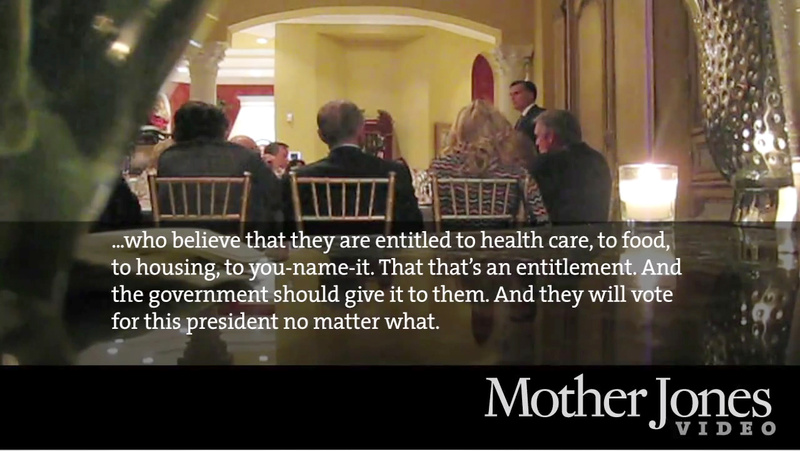There is a number from the undercover video of Republican presidential candidate Mitt Romney’s pep talk for big donors that should bother everyone, and it is not 47 percent.
That was the figure that Romney gave for the Americans who don’t pay federal income tax, whom he mistakenly conflated with the people who receive assistance from government programs, and who, in Romney’s view, “see themselves as victims” and won’t “take personal responsibility and care for their lives.”
There has been ample analysis that shows the nonsense of Romney’s statement: That there are hardworking students, veterans and seniors who receive well-deserved benefits from government programs, and many of them pay a higher percentage of their income in taxes than the wealthy investors with whom Romney was sharing his complaints about the national character.
THE BIG NUMBER
The number that hasn’t received as much attention, however, is $50,000, and it is not so easy to dismiss.
That was the price per plate of the Republican Party fundraiser at which Romney made his remarks. It is also, incidentally, a little more than the median household annual income in Maine, according to census figures released this week. Half of the state’s households earn more and half less.
So, the people who sat without objecting when Romney slandered nearly half the nation as a bunch of moochers had paid more for their dinner than half of Maine’s families earn in a year.
That these donors have outsize influence that distorts our politics is not news and it is not limited to Republicans. Democrats have well-heeled donors who get close to candidates and influence their postitions.
But the Romney video coming out at the same time as the census data should raise some troubling conclusions about the effect of that access on our nation.
The census looks at the slice of time between 2007 and 2011. It started with a financial crisis created by lax regulation of investors who bet recklessly on high-risk home mortgage derivatives that was followed by a steep economic decline and glacial recovery that still rocks middle-class families.
Since the start of the recession, Maine household income has dropped 8 percent. The percentage of families with young children below the poverty line (this year, $23,050 for a family of four) has increased 44 percent. The number of families that qualify for food stamps in the state has jumped 42 percent.
DISTORTING POLITICS
Meanwhile in Washington, issues of interest to the investor class, like deficit reduction and low top tax rates, get center stage, while issues that could make a difference in the lives of families trying to avoid or escape poverty, like health care, education and infrastructure investment, are largely dismissed as wasteful spending.
A report issued last week by the non-partisan Congressional Research office showed that since World War II, the only effect of letting the wealthy keep more of their income through tax-rate cuts is that the wealthy keep more of their income. There is no evidence over the last 67 years that the money circulates in the economy and increases Gross Domestic Product.
Wealthy political donors have always had more than their fair share of influence, but in the post-Citizens United world where there are no limits and there is no accountability, our democracy is in a perilous state.
When people who can spend more for a meal than half of our state’s families earn in a year have the ear of those in power, the interests of those families will not be heard.
Send questions/comments to the editors.



Comments are no longer available on this story